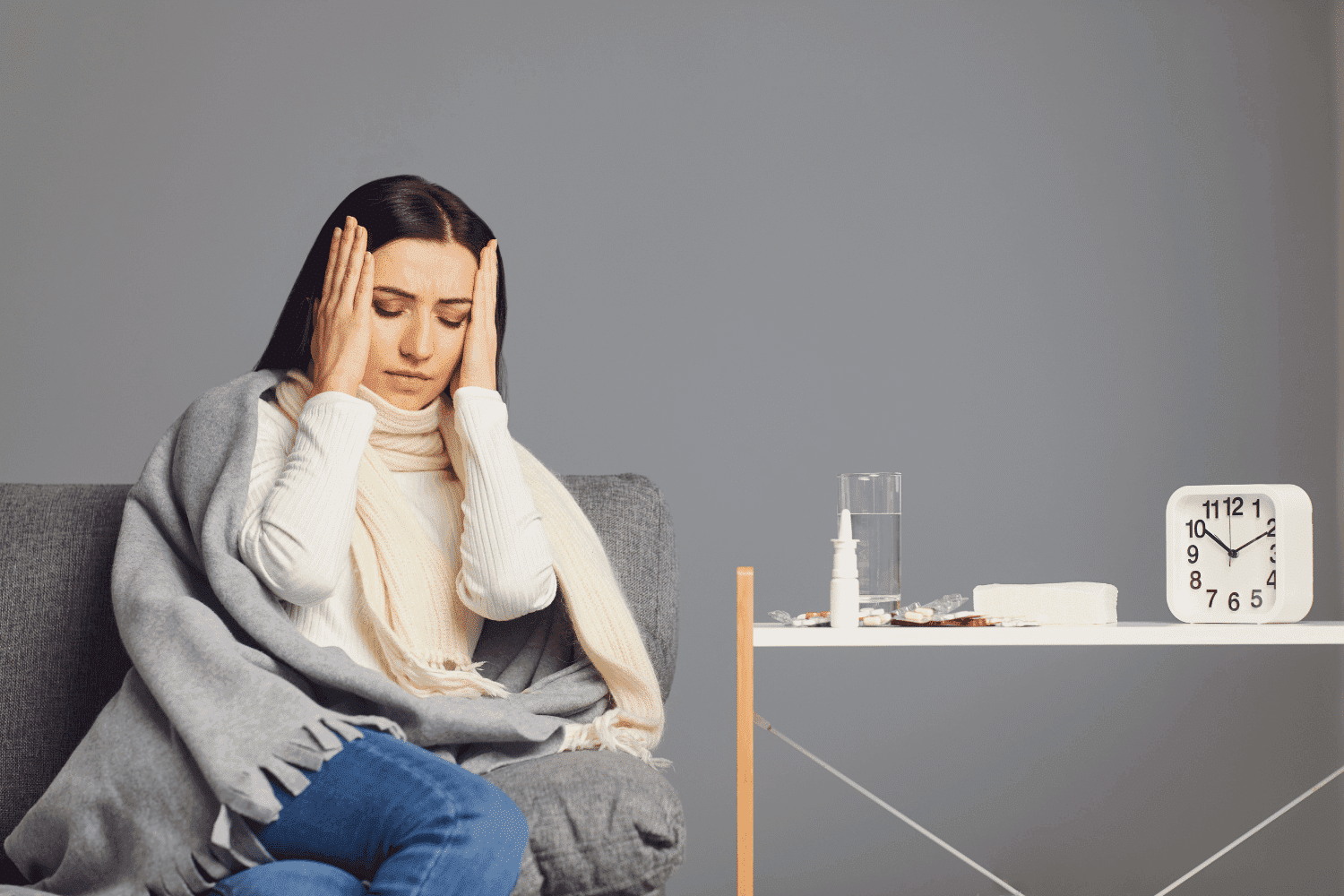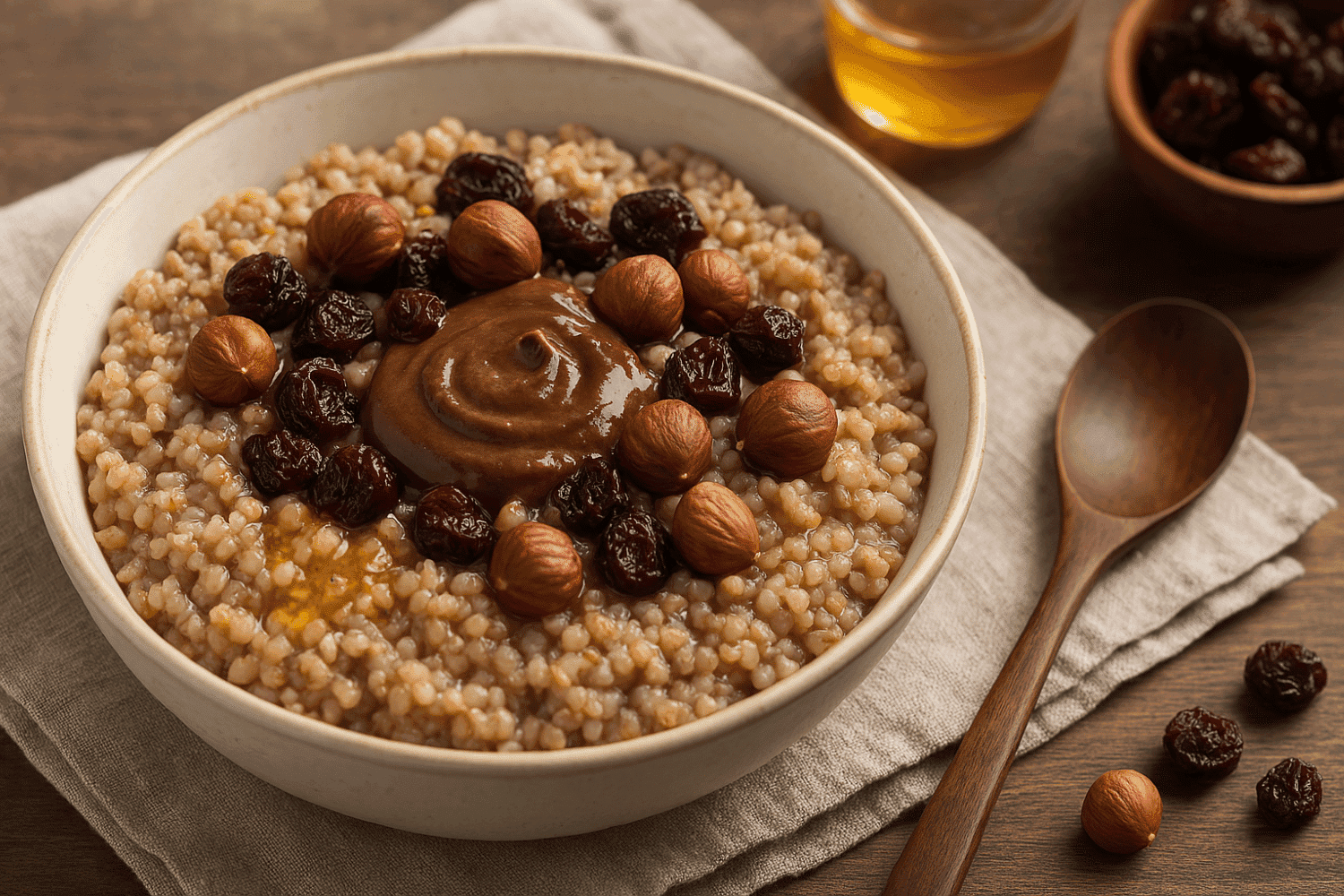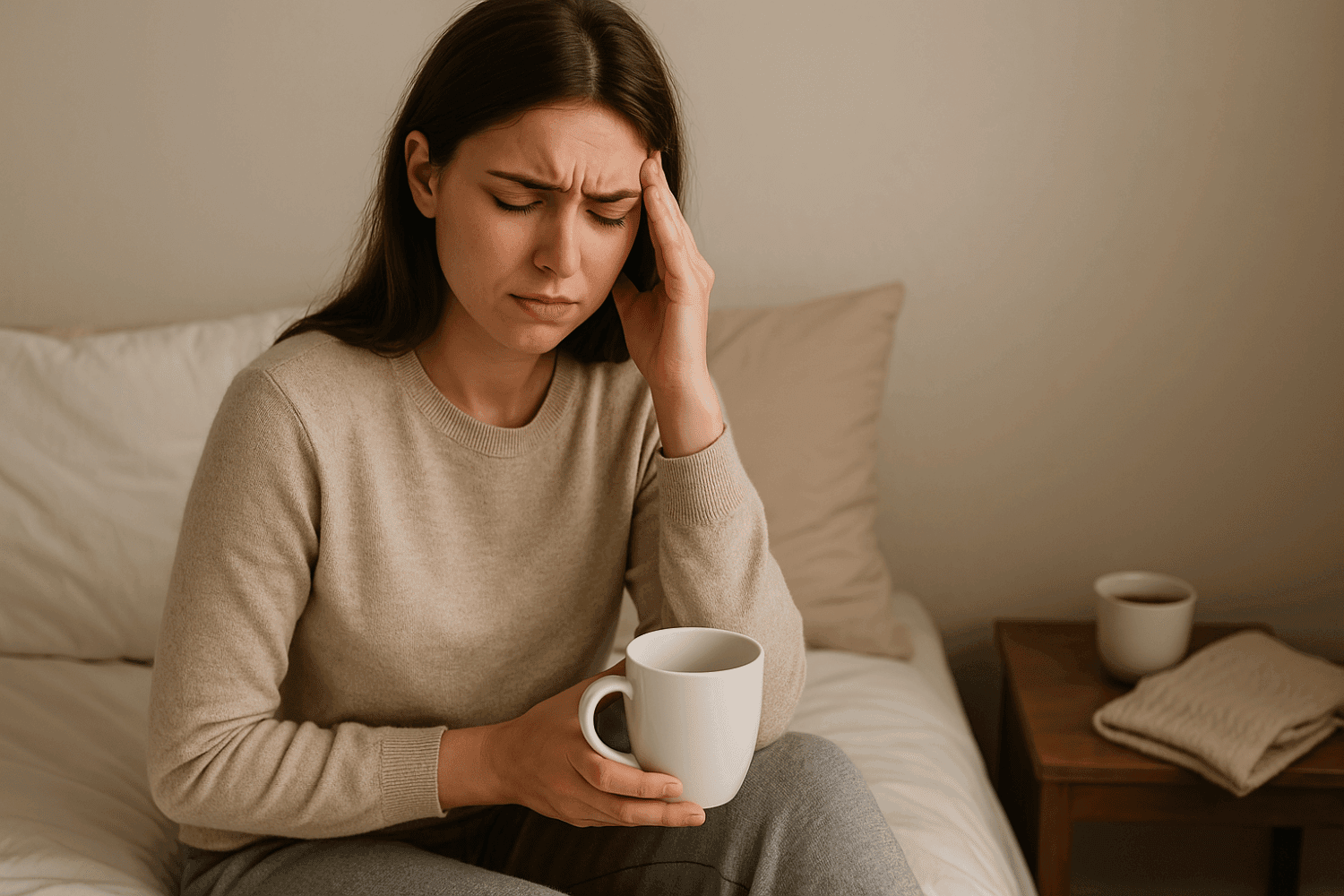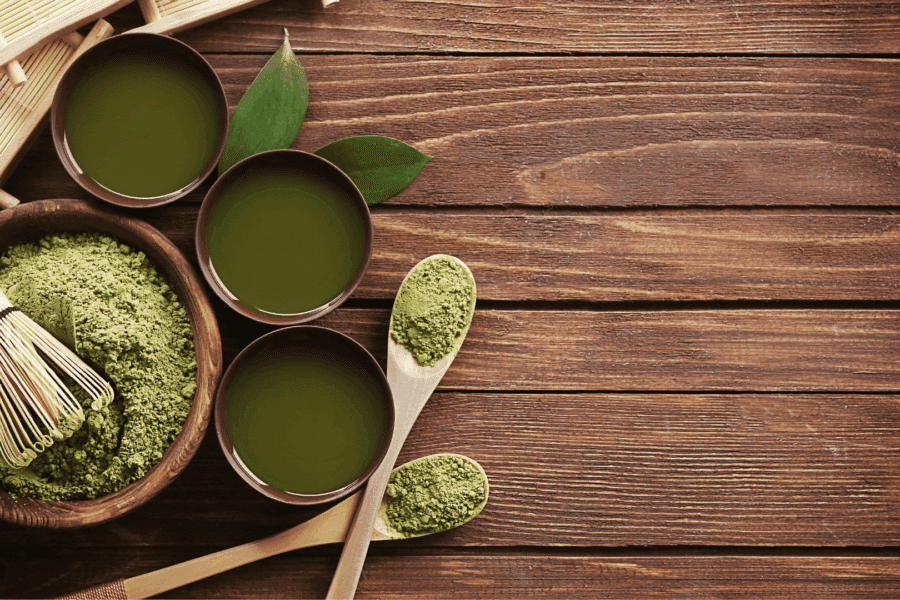Brief introduction and basics
Premenstrual syndrome (PMS) is a part of most women's lives and often presents a real challenge. Although almost all of us experience it in some form, little is said about how deeply it can affect our daily lives.
In this article, we'll talk about the basics of PMS, but more importantly, I'll share my personal routine that helps relieve PMS symptoms.
What does PMS actually mean?
Premenstrual syndrome (PMS) refers to a set of physical, emotional and psychological symptoms that occur a few days to two weeks before the start of menstruation. These symptoms usually stop with the beginning of the menstrual cycle.
When does PMS start?
PMS most often begins in the luteal phase of the cycle - that is the period after ovulation, approximately between the 14th and 28th days of the cycle, although it varies from woman to woman. In some women, symptoms may last only a few days, while others feel discomfort for up to two weeks.
The most common PMS symptoms
The symptoms of PMS are very varied, but among the most common are:
- mood swings
- anxiety and nervousness
- feeling tired and exhausted
- bloating and fluid retention
- headache
- increased appetite, especially for sweets and fast food
- chest tenderness and pain
Interesting facts about PMS
It also shows that you are not alone in this a 2020 global meta-analysis where an estimated 47.8% women of reproductive age experience PMS, with 20% having symptoms severe enough to interfere with daily activities, while the rest have mild to moderate symptoms.
In this article, I'll share my personal routine and practical tips for relieving PMS symptoms. I will talk about small rituals, eating habits and other things that help me personally overcome hormonal turbulence. Maybe you will find something that will make this challenging period easier for you too.
Here's what my little routine looks like for heavy PMS days.
My little routine for heavy PMS days
I'm not an expert, but I'm a woman whose plans are often disrupted by PMS.
This isn't a guide to the perfect routine, but my way of making those days easier for myself — a way that I've been changing, adding, and adapting over the years. However, some habits have remained a support for me when this period comes, and maybe they will help you too - that's why I'm sharing them here.
There are days when I feel like I have everything under control. I try to eat right, train regularly, take care of my health...
And then PMS comes.
Suddenly, neither healthy food, nor a good night's sleep, nor the morning coffee that I love the most helps - and that coffee is a small ritual that brings me back to balance (after breakfast, of course, never before on an empty stomach). Just nervousness for no reason, the feeling that I might cry because someone said "good morning" to me.
I become more fearful than usual - I worry about things that were unimportant to me the day before.
I start playing movies in my head, questioning myself and everything around me. Anxiety raised my pulse for no reason.
Sometimes I even catch myself having the feeling that "something bad is about to happen", even though nothing concrete is involved.
I have insulin resistance, an often irregular cycle and PMS that sometimes throws me completely off track. Although I have been taking care of my diet for years, I always have healthy food around and my fridge is mostly full of 'good choices', not all days are easy.
That's why I'm not writing this to give advice "just right", but to share what helped me get through those days with a little more understanding towards myself.
Maybe you'll recognize yourself.
And maybe some of this will mean something to you just when you need it.

What DOESN'T work (at least not for me)
I tried to ignore the PMS.
To continue working, training and functioning as if nothing is happening.
To go "head through the wall" and force myself to be productive.
But every time I end up exhausted even more – physically, mentally and emotionally.
I also tried the other thing - to seek comfort in fast food and small snacks.
It seems to me that I am constantly "chewing" on something, without a real appetite. It's like I'm looking for relief in every bite.
And for a moment it really gets easier. It's like my brain forgets that I'm having a hard time.
But after... even more tiredness, guilt, bloating, lethargy.
That's why I slowly started to listen to my body. Not always successful.
But when I stop and ask myself "What do I really need?”, sometimes I get an answer that is not from the fridge.
What HELPS ME - little rituals for hormonal chaos
It won't solve everything, but these things really make a difference to me.
They're neither complicated nor perfect, but they help me get through PMS with more peace and less drama.
Something sweet, but clever.
That's when I usually feel like eating. something sweet right now. I would have taken chocolate, any kind, before. Now I open it first Bombus RAW ENERGY bar with mango – the red one.
It fills me up quickly, it's sweet enough to satisfy a crisis, and I know it won't wreak havoc with a sugar spike like a "classic" candy.
Sometimes I divide it in half and eat part in the morning, part in the afternoon - purely to prolong the feeling that I have something "of my own" for this period. If I divide it like this, I often add another 4.5 almonds or walnuts to that half of the chocolate bar, it depends on what I'm snacking on at that moment.
Magnesium every night
Magnesium bisglycinate our shop has become a little "evening ritual" for me.
When I drink it 5 to 7 days before my period, I notice that my cramps are milder and my head is more stable.
Less "bursting", less tension in body and mind.
Sometimes I drink it with warm water and a few drops of lemon - just to calm my stomach and brain.
A cup of tea and 15 minutes without a phone
When I feel that I'm starting to "fall apart from the inside", I don't immediately go for food - although I feel like taking everything I have, since I'm not too much of a sweet tooth, I always have the excuse that a sandwich for the 3rd time today as a supplement is completely ok, unfortunately so often, it's not.
At that moment I'm cooking for myself. Saturates organic chamomile – and I pour it into a big cup.
I turn off all notifications, sit alone and just be silent for those 15 minutes.
Sometimes it is the only part of the day when I "reset".
Comfort food - Buckwheat mixture that tastes like eating my mom's pancakes to me
PMS often brings me physical fatigue as well - some heaviness in my muscles and a bloated stomach. That's why I like something that's soft, nourishing and familiar.
I am cooking. buckwheat, and while it is still warm, I add a spoon cream cocoa spread without sugar (the one from Alexandria), a little of ours organic honey, and a spoon dried cherries, it used to happen that we ran out of honey in the house, so I replaced it with a banana and a spoonful of nut butter (usually hazelnut).
It's like a home version to me “healthy comfort food”.
Sometimes I add a teaspoon of pumpkin seeds - raw scoops, contains zinc that helps with hormones and skin in PMS, and gives a slight crunchy contrast, and necessarily, although I'm not a fan, but it's simply not felt in this combination, I also add a pinch of cinnamon, because has a positive effect on blood sugar levels and insulin resistance.
They don't change the taste, but they make a difference to the body.

My recipe for warm PMS porridge — Sweet, soothing and filling
This is my little savior when I feel like eating something tender, nutritious and comforting.
Warm buckwheat with protein cocoa cream, nut butter, dried cherries and a little honey - like a healthy dessert, but it really fills me up and calms me down.
I make it mostly for dinner, on days when I'm feeling more vulnerable and looking for something that warms me from the inside.
Ingredients (for one serving):
- 60g buckwheat
- 1 level spoon of cocoa cream spread
- 1 level tablespoon of hazelnut butter
- 1 tablespoon organic honey
- 2 tablespoons dried cherries
- 1 tablespoon of pumpkin seeds (+ for hormones, does not change the taste)
- A pinch of cinnamon (+ for insulin, does not change the taste)
Preparation:
- Soak buckwheat 30 minutes before cooking, to soften it (it is not mandatory, but it is easier to digest).
- Boil buckwheat in twice as much water until it softens (10-15 minutes). The water may remain a little "mushy".
- Add cocoa cream, hazelnut butter, honey and dried cherries to the warm buckwheat. Stir until everything is combined.
- If desired, add pumpkin seeds and cinnamon.
- Eat slowly, without haste, ideally with soft music or in silence.
Why do I love this combination?
Because there is a good balance of carbohydrates, healthy fats and fiber, it doesn't burden my stomach and I really like it when my energy is low.
I don't feel guilty afterwards, and yet it satisfies my need for "something sweet and nice".
In addition to all this, I have to admit - I really love this meal. The taste reminds me of pancakes, only in a healthier and warmer form. I don't eat it because I 'need' it, but because it pleases me - both for my body and my palate. It took me a long time to find a recipe that works for me like this - comforting, tasty and healthy at the same time. I could eat it every day without feeling guilty.
Nutritional value per serving:
- Calories: 474 kcal
- Protein: 14.9g
- Fat: 22.0g
- Carbohydrates: 62.6g
Although due to its nutritional value, this porridge is ideal for a morning meal - especially in the PMS phase when my energy drops and I lack something filling and stabilizing - I usually eat it in the evening.
It's just that I rarely have time to get it ready in the morning, unless PMS hits me on the weekend (which can be a blessing).
Then I prepare it slowly, without haste, and it is exactly what I need - soothing, delicious and really mine.
Conclusion
I haven't found a magic solution for PMS.
It still happens to me that it surprises me, that I cry for no reason or binge on something I didn't even want.
But I've learned not to fight myself every time my body asks me to stop.
On those days, I'm not looking for perfection - I'm looking for what pleases me.
And most often it is some food that I prepared myself, without pressure, without great expectations - just to comfort and feed me.
Food helps me get through those days with less drama – and more understanding of myself.
If all this sounds familiar to you - know that you are not alone.
If you need inspiration for your little "PMS corner" in the kitchen, you can find all the products I mentioned on our website. The links are there in the text.
And remember - sometimes it's enough to just stop, take a deep breath and be tolerant of yourself.








